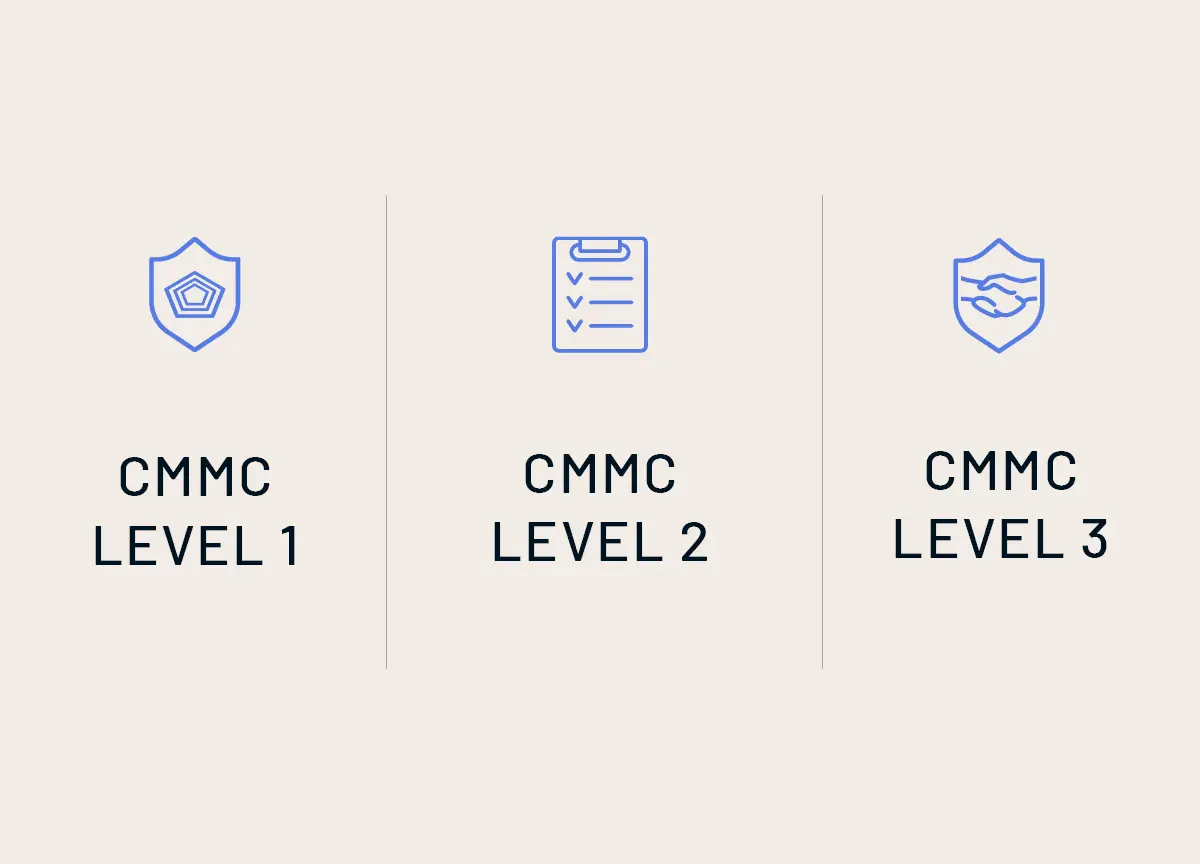Not Sure if CMMC Applies to You?
If you handle defense-related drawings, specs, schedules, or contract data—then it likely does.
Take the QuizAchieve CMMC readiness without complexity. Instead of managing multiple tools and vendors, the CMMC Ready Suite unifies everything you need: CUI protection, documentation, and assessment support all in one fully managed solution purpose-built for the Defense Industrial Base.
This solution cuts through the complexity of CMMC. Protect your contracts and your data with one provider and one fully managed solution. Helping you stay in control of your entire path to CMMC Level 2 assessment.

If you handle defense-related drawings, specs, schedules, or contract data—then it likely does.
Take the QuizCMMC 2.0 Compliance: Legal Insights and Practical Solutions
What You’ll Learn:

Protect CUI with controls aligned to all 110 NIST SP 800-171 requirements, ensuring secure handling across people, processes, and systems.
Automatically generate and maintain SSPs, POA&Ms, and policies so your documentation stays current and assessment-ready.
Streamline readiness with gap analysis, evidence management, and remediation tracking to accelerate certification timelines.
Professional services help you close CMMC control gaps software can’t address, ensuring you’re fully prepared to pass your assessment.
Compliance doesn’t have to be complicated or unpredictable. Exostar’s CMMC Ready Suite is offered in three standardized tiers aligned to your company’s size, complexity, and software environment, so you know exactly what you’re getting and what it costs.
Support your Defense Industrial Base clients without needing deep CMMC compliance expertise. Exostar’s CMMC Ready Suite™ equips you with the tools and services you need to help your customers meet CMMC requirements—quickly, affordably, and at scale.
The Department of Defense’s (DoD) program to make sure all contractors meet specific cybersecurity standards. Think of it as the DoD’s “cybersecurity report card” you must pass to keep or win contracts.
Sensitive government information that isn’t classified but still must be protected.
Examples: technical drawings, purchase orders, or supplier data related to defense projects.
If leaked, it could still harm national security or military readiness.
A set of 110 security requirements published by the National Institute of Standards and Technology (NIST).
These are the “rules of the road” for protecting CUI, and CMMC is built on them.
Contract rules from the DoD that require contractors to follow specific cybersecurity standards:
Together, these clauses make cybersecurity and CMMC a mandatory condition for doing business with the DoD.
Exostar provides an affordable, unified path to CMMC Level 2 certification, purpose-built for the Defense Industrial Base.
Talk to a CMMC expert and determine your tier, clarify your requirements, and build a clear path to compliance. With a fully managed solution, your compliance journey becomes structured and fast.
You focus on your business; your solution handles the rest.